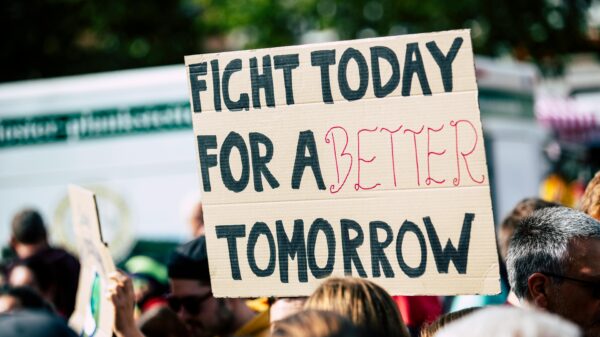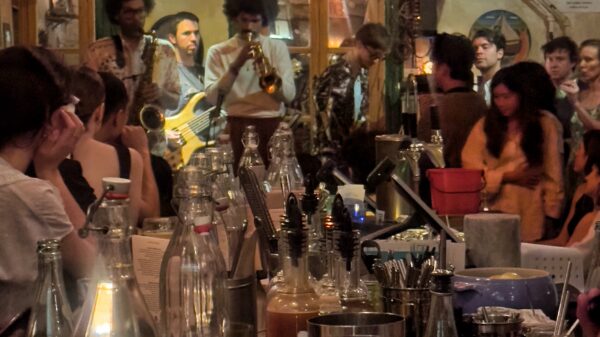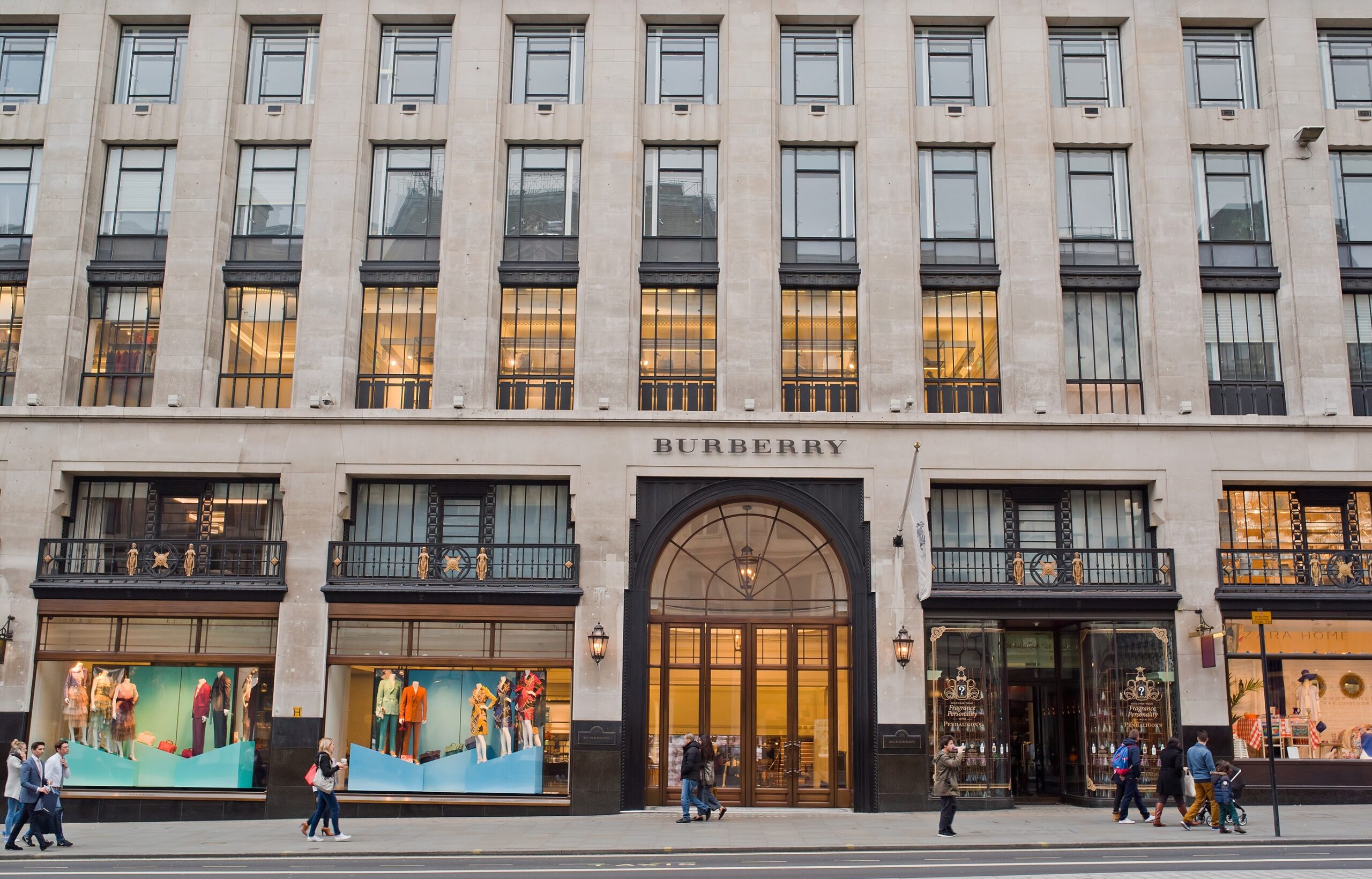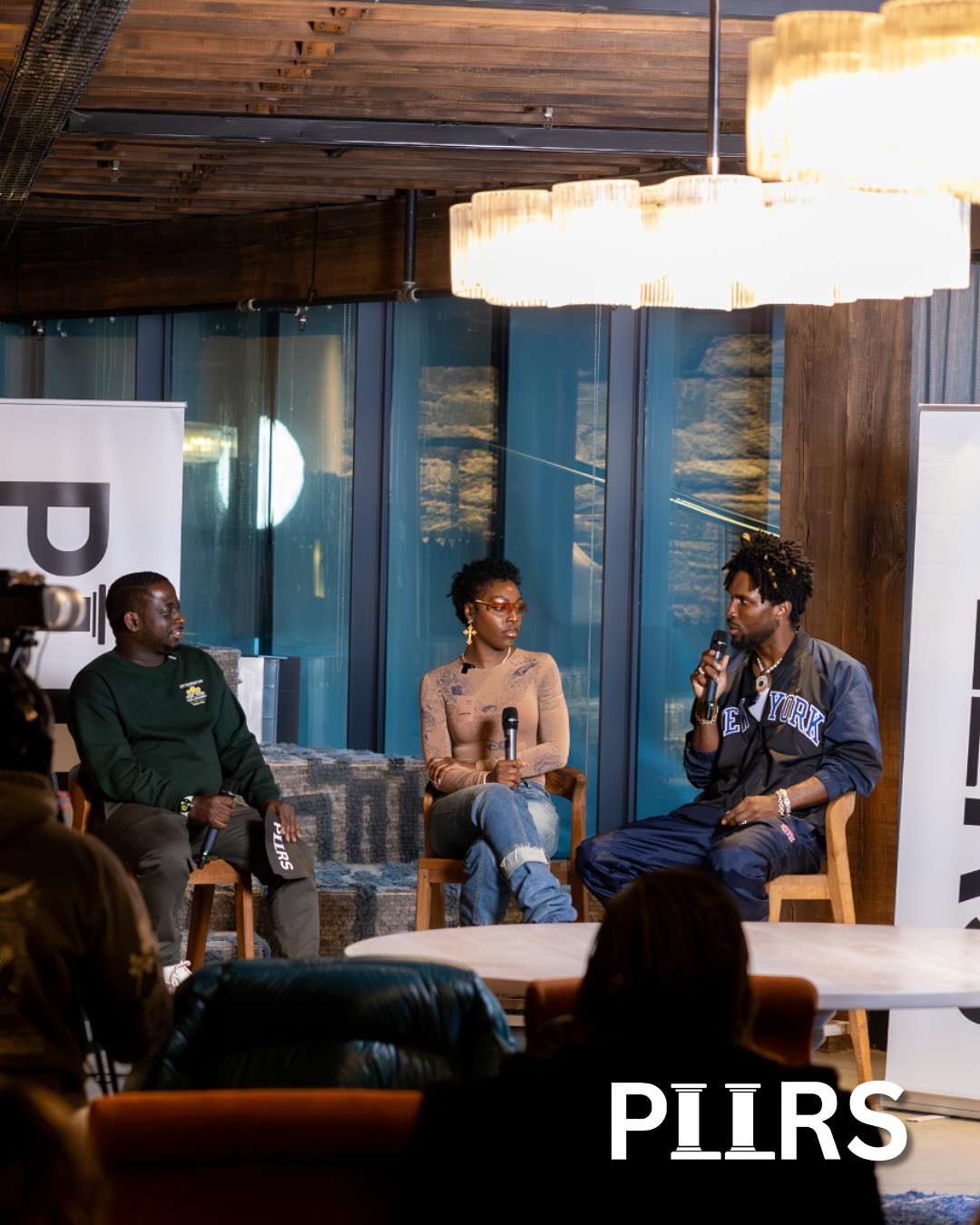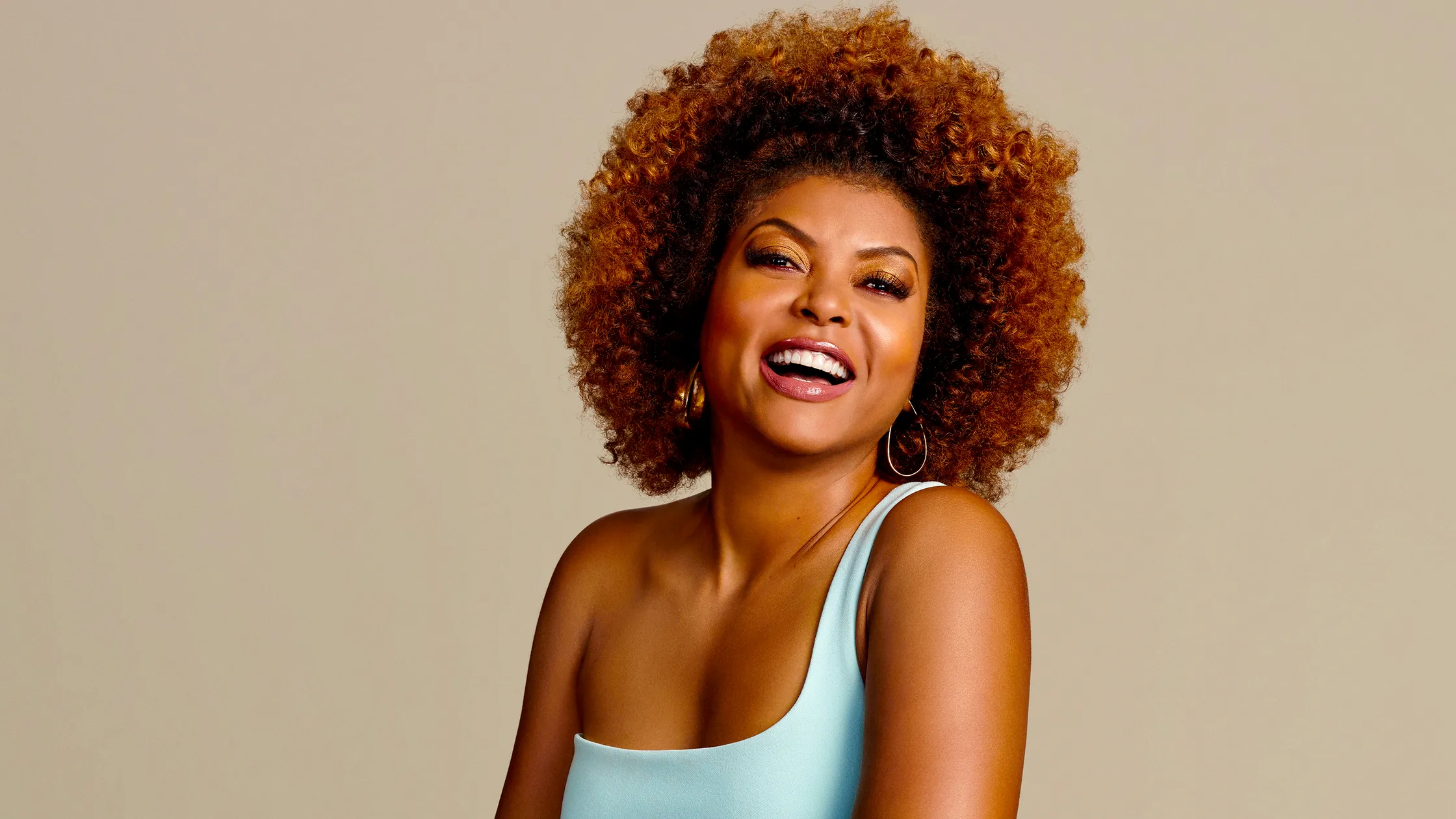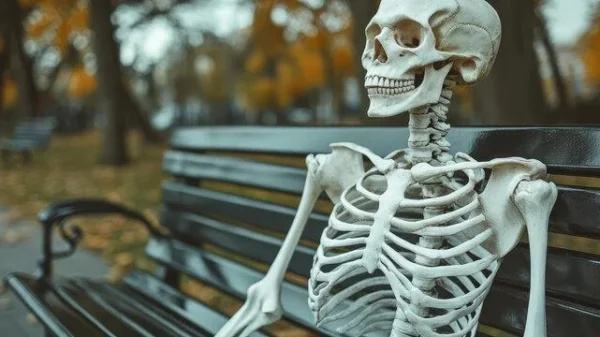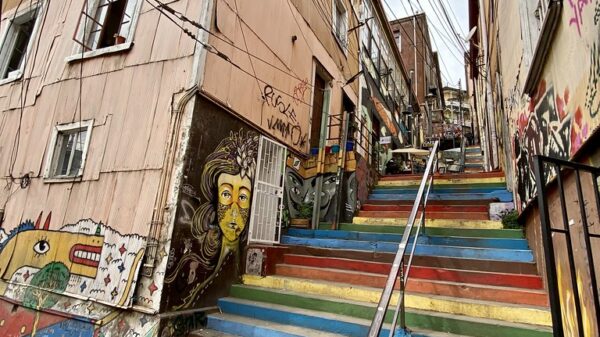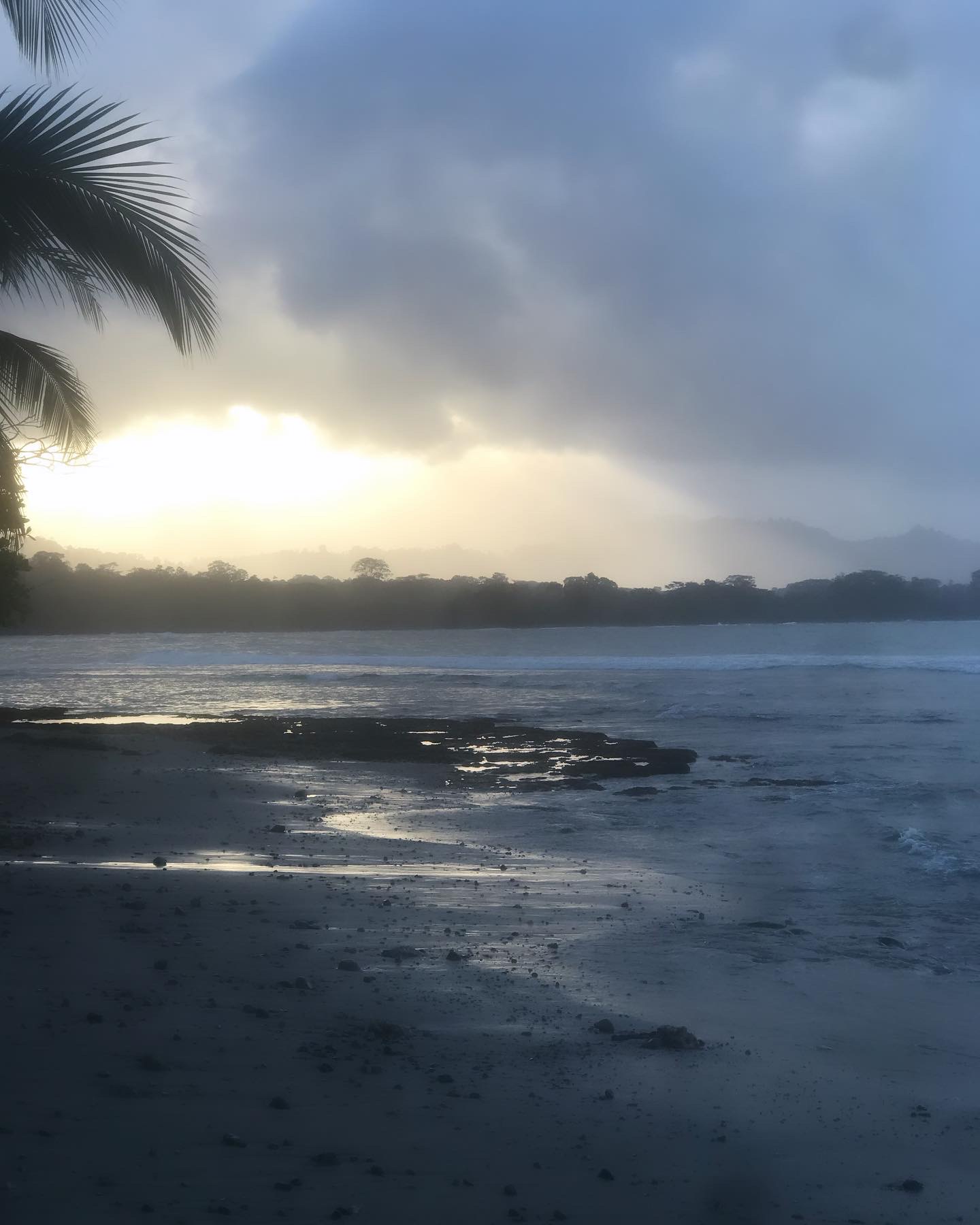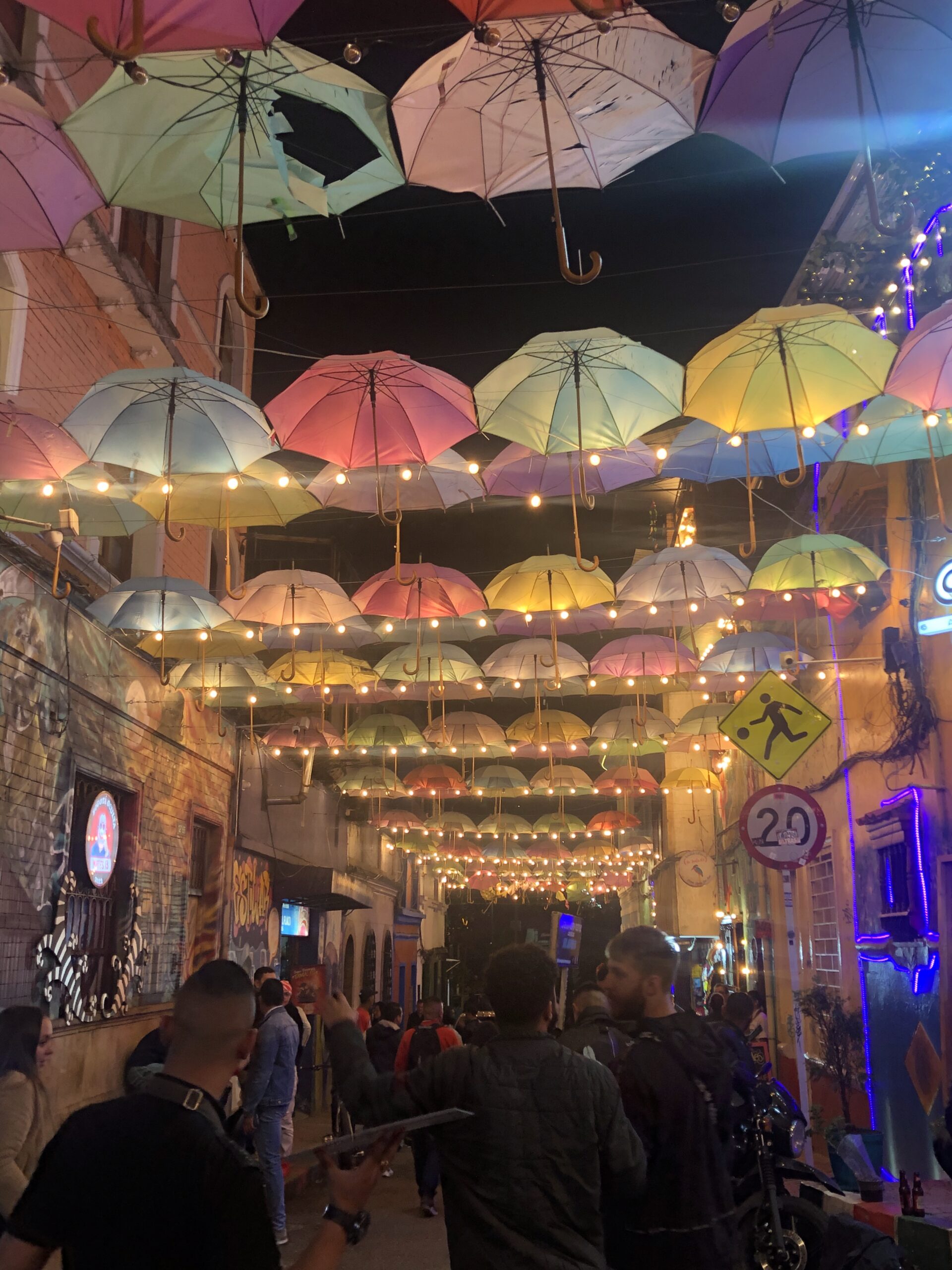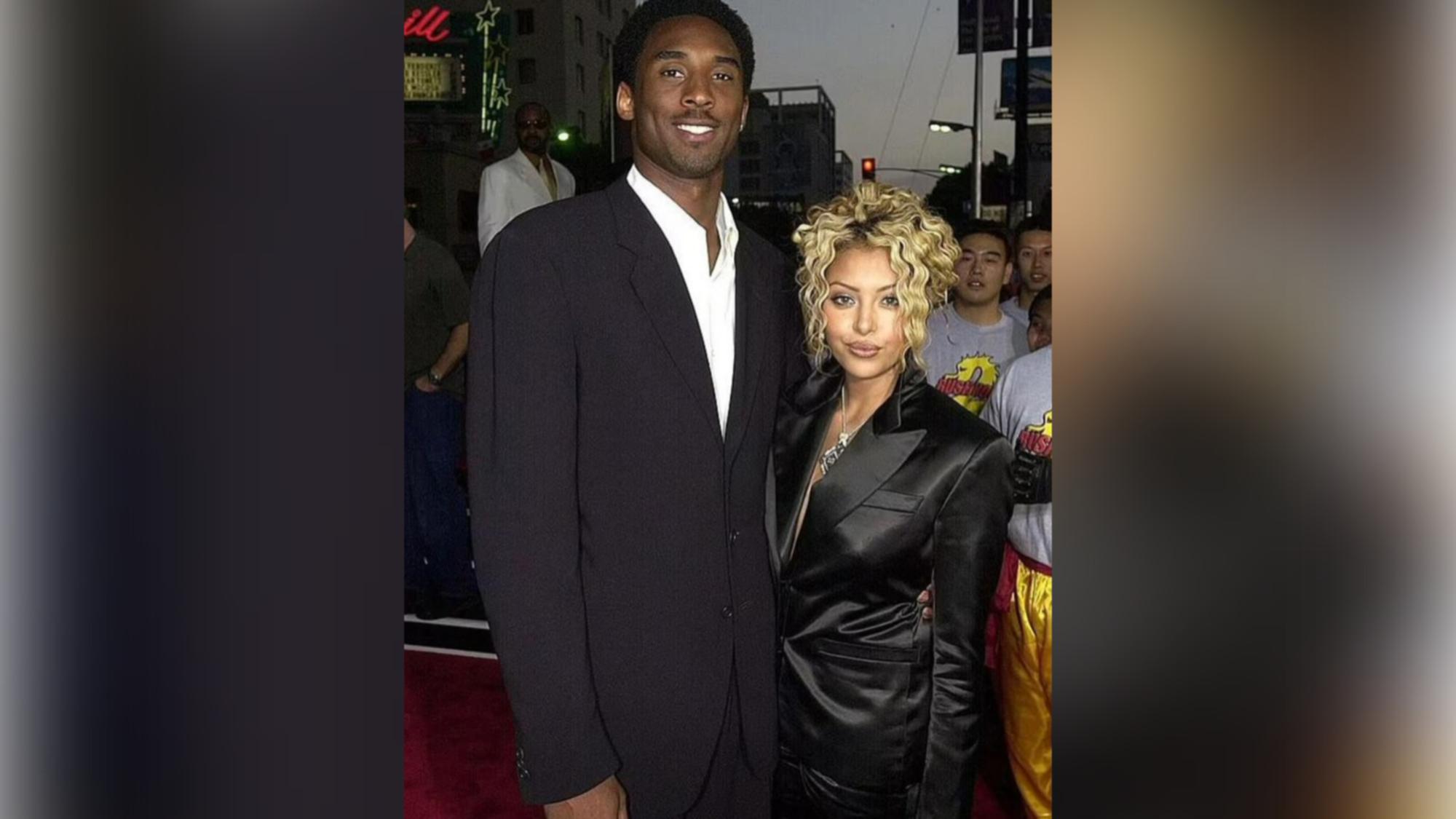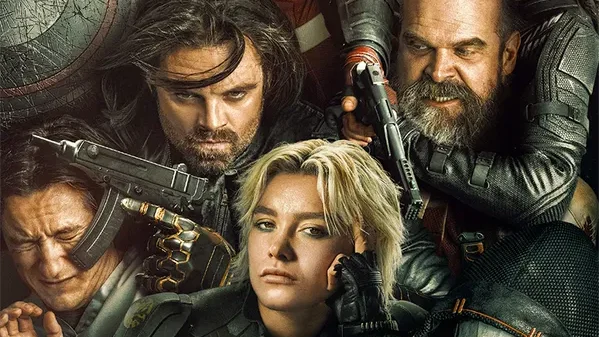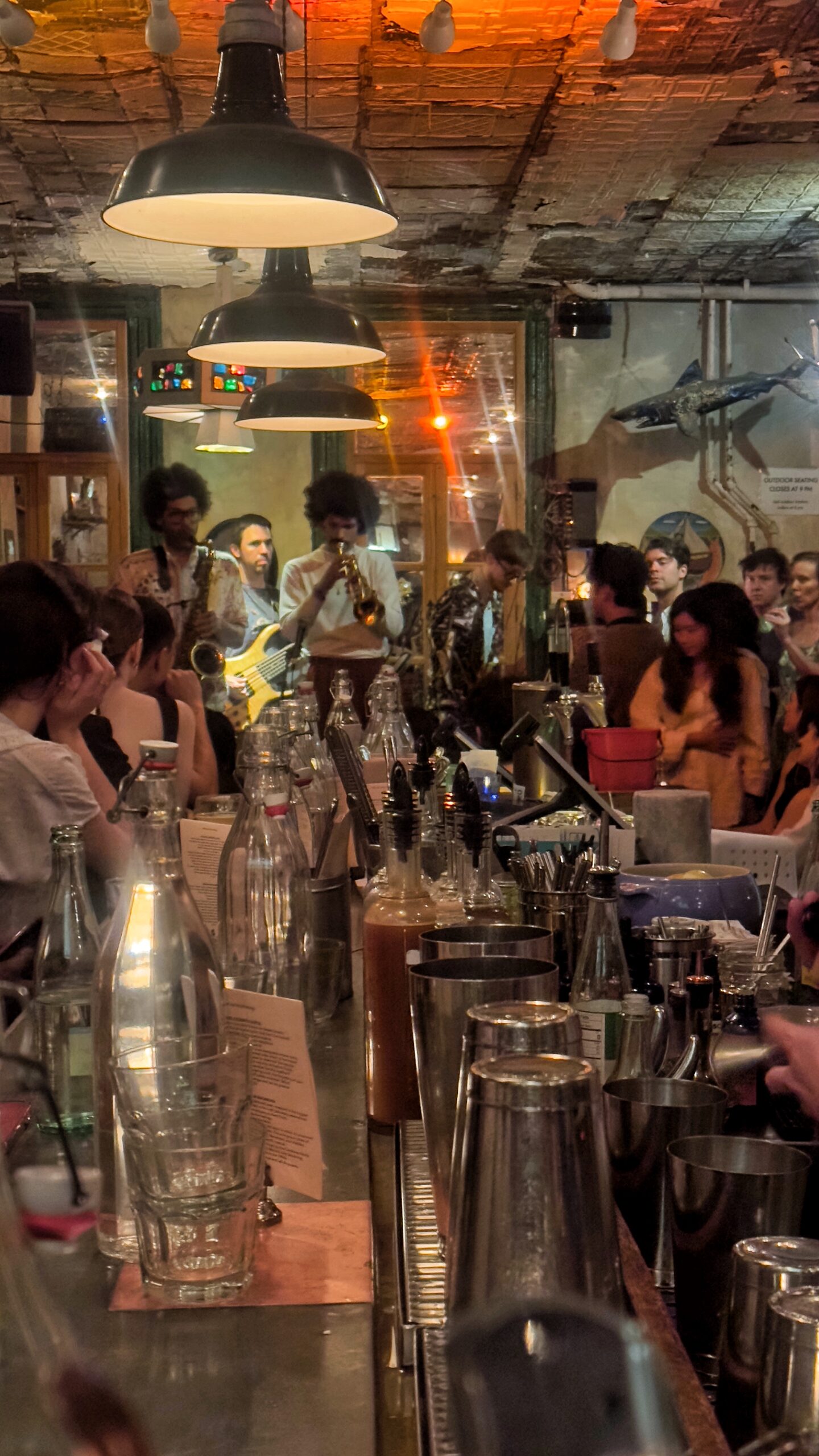Artist of the Month
On a 58-degree spring evening in Brooklyn, the warm buzz of Lunatico—a beloved jazz bar in Bed-Stuy—was filled with hipsters, culture curators, and lovers of live music. Inside, the air pulsed with trumpet riffs and clinking glasses as I sat down with jazz musician Wayne Tucker, frontman ofWayne Tucker and The Bad Mothas. Known for fusing R&B, funk, and soul with protest energy and global flair, Tucker spoke with me about building community through sound, crafting music that heals, and why gratitude is the real headliner.
JAMES RASHAD: Wayne Tucker the Bad Mothers! How long have y’all been rocking?
Wayne Tucker: So I started writing music, which made me form a band, really in college. But it really became this iteration, these particular six members at the beginning of the pandemic.
JR: You have a worldwide ensemble. How did that happen?
WT: There was just five out of six people have lived in my apartment. And we have two keyboards, because one keyboard player, subbed for my keyboard player, and he learned the music so well. I was like, oh, I to have him too. Just felt like he was part of the band. And in previous iterations, I had had an organ player and a piano band. And I was like, oh, two keyboards could be a vibe too. It’s a lot of the music I like to listen to.
JR: What’s your origin story? How did you get here? Because you don’t see too many trumpet players that put the trumpet down and start singing.
WT: Well, I grew up in a musical family, and so I started playing music at home first with my parents. My brother and my dad played kind of what we’re playing now, some sort of mix of R&B, funk & soul. He played some rock, he played some gospel. His sister was a full time gospel church pianist, so she would come over and play that. So those were really like, you know, my musical foundations. First I was on keys, I studied classical violin, then I played some classical oboe. Then I picked up Trumpet, and really, I picked up Trumpet because I wanted to play two things. I wanted to play in the Jazz band with my brother who was playing saxophone. And I wanted to play in like, the pep band at Syracuse. I wanted to play at the basketball games. Those things.
JR: So I’m a big believer that music is synonymous for culture. It’s kind of hard to separate it. And you’re stylish brother. Where does a line get drawn where your style fuses in with your music.
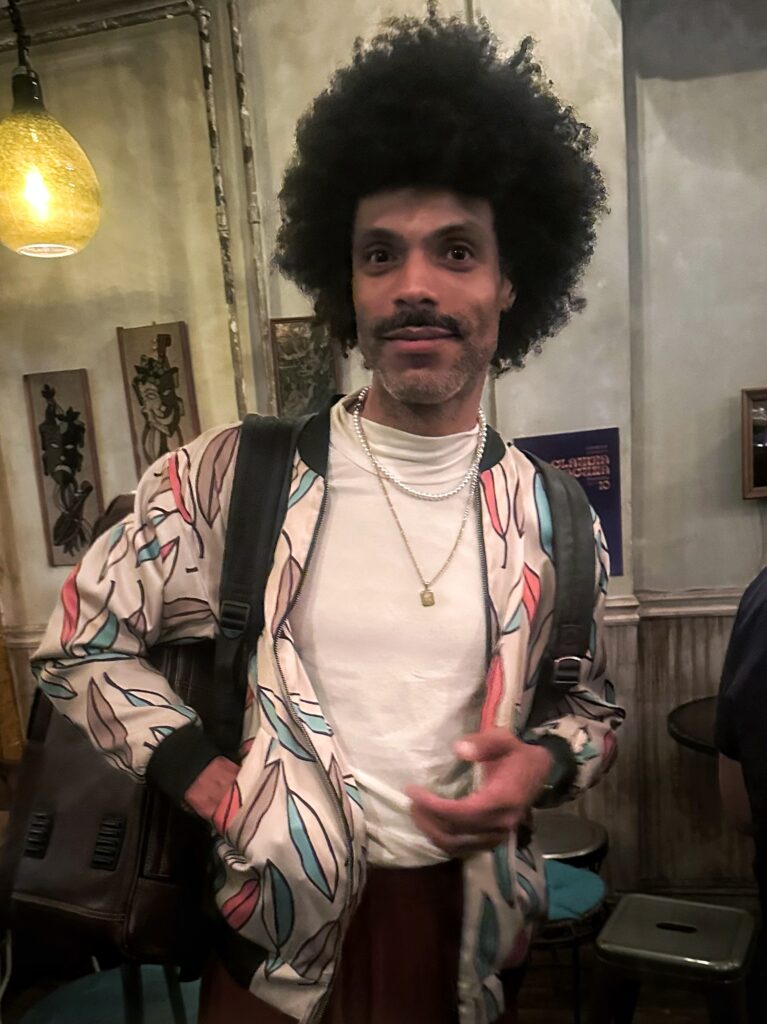
WT: It’s all the same thing for me. Because to me, I see music in everything that I do. I’m not gonna say I see fashion and everything I do, but when I’m checking out fashion, I see music within it.
JR: See the rhythm.
WT: Yeah, yeah, and I picture, oh, if I was playing this type of vibe or if I was at this particular stage, I have different things I’d wear for different performances. I toured with the band that plays rock and medal. Actually a protest band. We wear white jump suits on the stage. and create such a vibe when you see people in white jump suits on stage playing rock and metal protesting Trump. Right? And to me, for my band, I want you to look good in a way that really feels like you real. But when walk through a room, I want people say, “I want to know who that is”.
JR: All good music is making a statement. I heard so many different vibrations of your music. From lullabies to house music. I heard a little bit of Miles Davis with the bitches brew.What’s statement are you making?
WT: For me, really, the statement, I want my music to make. is that everyone’s going through something troubling. I want to give everyone a little bit of something to tap into when they’re going through that troubling moment. For some people its a lullaby, for some people its funk. And then the overall statement for the band to me, we have a piece that we didn’t get to today. It’s called “Gratitude”. And it’s a meditation. And basically we play the same thing all over again till everybody gets it. I’m writing music trying to help people make life work, you know? I just want you to push through it and give people these beautiful vibrations to uplift them in times of trouble.
JR: Last question. It’s a two part question. The first part, have you performed on your dream stage yet? Do you have a dream stage?
WT: I don’t have a dream stage. I do have some stages that I say… you know what? I take that back. Yeah, I take that back. No, I have not. Village Zangard is it. That’s a dream for me. So, no, I take that back.
JR: So now the second part is what do you have a vision of what you’d be wearing on that stage?
WT: Oh. You know what? It’s an older place. I want to wear something ’70s vintage., Maybe.. Have a pair of purple flower pants. slightly tapered and like bell bottom-esque, but not super big. Just a little something. Yeah, it might even just wear that with a black tee and, like, a nice chain or something. I don’t know. That’s my first instinct. Maybe a nice, like a light jean jacket but a little faded or something.
JR: The theme of this year and going into the future is community & family. When I say those words, community and family, what’s the first thoughts that come up to you?
WT: In the pandemic, my band played outside. We have people that came up to meet tonight and said, “You guys playing outside during the pandemic’s saved me?” Those are the same people still here rocking out with us. I’m with the same cats, playing music, right? So standing next to my brother. So that’s what it is..
Wayne Tucker and The Bad Mothas are rooted in intention. The music is layered, global, and built on lived experience—from classical training to protest stages, from family foundations to pandemic resilience. It’s a sound that speaks to struggle, joy, and everything in between. And it’s still evolving. Alongside in house pianist David Linard, Wayne’s latest release “What A Wonderful World”; a rendition of the Louis Armstrong’s 1967 Jazz standard,captures the spirit of where they are now. The band is connected to the core of what music lovers expect while navigating that space of unpredictability we need keep us on the edge of our seats. Stream “What A Wonderful World” today and let it meet you where you are.
Who should be the next West Ward Beans features Artist of the Month? Comment below!

